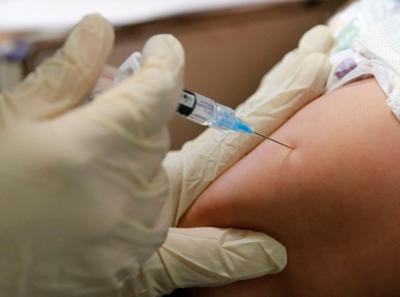BENNINGTON – The state Department of Health announced Wednesday that Vermont has experienced its first confirmed case of measles since 2018. The case involves an individual who is in Vermont as part of an international group program, the department said.
The remaining members of the group, who were staying at the Hampton Inn in Colchester, were exposed to measles before entering Vermont. However, the department said most had immunity and were protected from measles.
On April 10, the Health Department was informed by the Georgia Department of Public Health that the group was exposed to a traveler who was found to have measles following their arrival on an international flight to Atlanta. Upon notification, Vermont public health officials quickly provided guidance about isolation to the group to reduce the risk of exposure to the public.
The health risk to members of the public in Vermont is low, the department reported. However, there was a limited possibility of exposure at the hotel where some of the travelers were staying.
“There’s a lot of measles around,” said state Epidemiologist Dr. Patsy Kelso. She said the Centers for Disease and Prevention Control reported that so far in 2024, there have been 125 cases in the U.S. – with a total of seven outbreaks, each comprised of three more cases.
She said there have been another 50 cases in Montreal, adding, “We know a lot of Vermonters go back and forth to the Montreal area.
“It’s one of the most infectious diseases there is,” Kelso said. “It’s easily spread from one person to another.”
For decades, the focus on vaccination against measles reduced the incidence of the disease to the point of elimination.
“Vermont has pretty good vaccination rate for measles, but you need really, really robust rate in a community to prevent the spread,” she said. “You won’t see any spread if everyone around them is vaccinated.”
Kelso said the U.S. has experienced a lower vaccination rate for a variety of reasons, including a reluctance by some parents to vaccinate their children over “well-disputed” concerns that the shots lead to autism. In addition, vaccination rates dropped during the COVID pandemic.
“Vaccination rates are not where they need to be,” she said, noting that up to 90 percent of people who have close contact with measles and are not vaccinated will get the infection. “We need 95 percent or more of people to be up to date with their vaccinations to prevent the spread.”
The U.S. has had “elimination status” from the World Health Organization for the last 20 years for not having an endemic spread of measles for at least 12 months. But, she said, “we’re on the brink of losing that elimination status in the U.S.”
Most of the cases in the U.S. involve people who have traveled abroad and been exposed overseas, where vaccination rates are lower. They then returned home, bringing measles back.
To those living in Southern Vermont and therefore not in close proximity to the Colchester case, Kelso said the message is the same.
“The most important message is it’s all around,” she said of measles. People should check their medical records to ensure they have received two vaccinations (the first is usually given at age 1; the second typically comes between ages 4 and 6. Anyone who did not receive the second vaccine should talk to their medical provider about getting a second dose).
“Be aware of your immunization status,” she advised.


